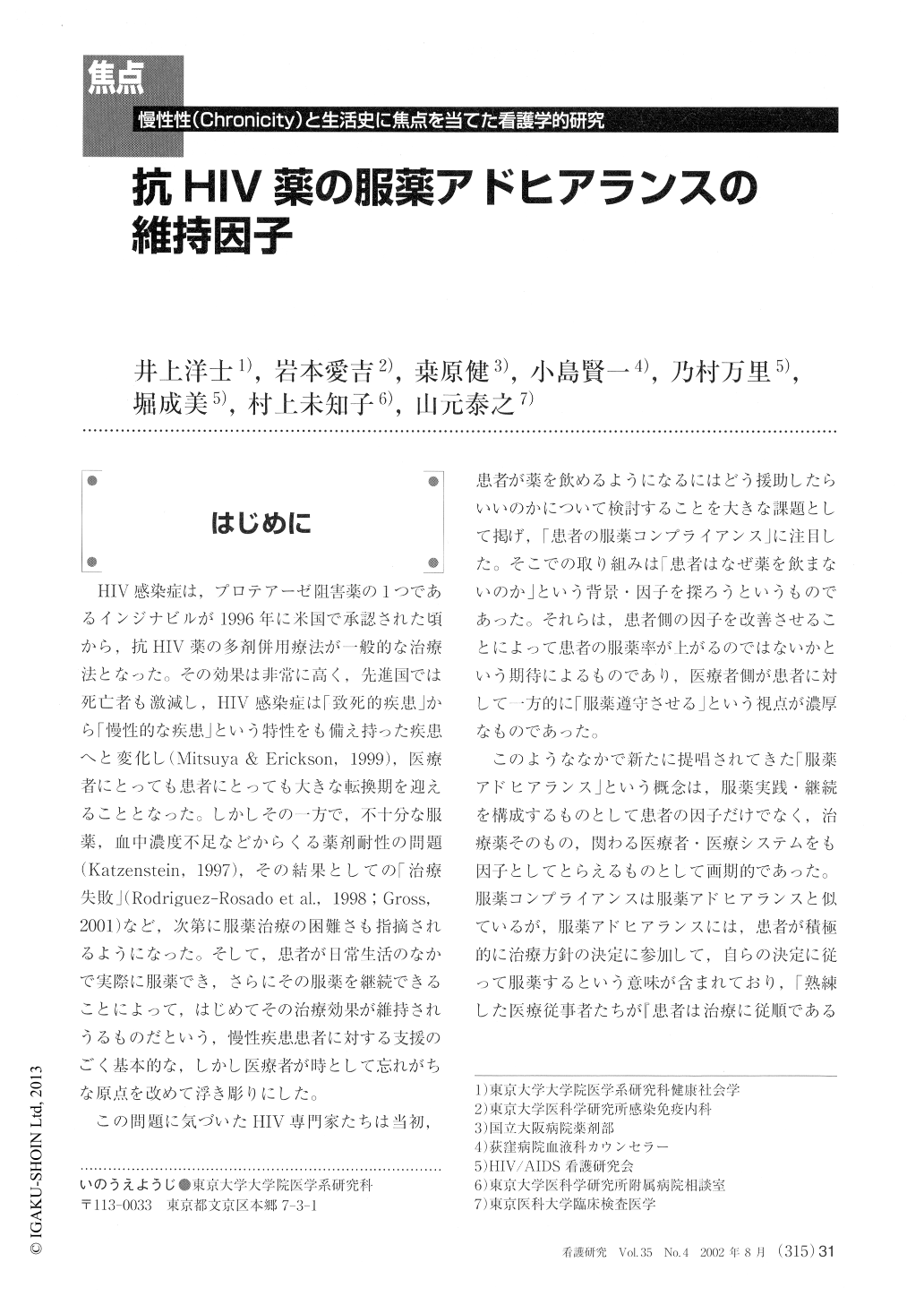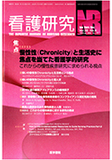Japanese
English
- 有料閲覧
- Abstract 文献概要
- 1ページ目 Look Inside
- サイト内被引用 Cited by
はじめに
HIV感染症は,プロテアーゼ阻害薬の1つであるインジナビルが1996年に米国で承認された頃から,抗HIV薬の多剤併用療法が一般的な治療法となった。その効果は非常に高く,先進国では死亡者も激減し,HIV感染症は「致死的疾患」から「慢性的な疾患」という特性をも備え持った疾患へと変化し(Mitsuya & Erickson,1999),医療者にとっても患者にとっても大きな転換期を迎えることとなった。しかしその一方で,不十分な服薬,血中濃度不足などからくる薬剤耐性の問題(Katzenstein,1997),その結果としての「治療失敗」(Rodriguez-Rosado et al.,1998;Gross,2001)など,次第に服薬治療の困難さも指摘されるようになった。そして,患者が日常生活のなかで実際に服薬でき,さらにその服薬を継続できることによって,はじめてその治療効果が維持されうるものだという,慢性疾患患者に対する支援のごく基本的な,しかし医療者が時として忘れがちな原点を改めて浮き彫りにした。
この問題に気づいたHIV専門家たちは当初,患者が薬を飲めるようになるにはどう援助したらいいのかについて検討することを大きな課題として掲げ,「患者の服薬コンプライアンス」に注目した。
The authors formed a two-part project; quantitative analysis part and qualitative analysis part. The first part consisted of a survey to compare a high adherence group with a low adherence group (N=26). The second part used interviews with a subsample of the high adherence group (N=16). Quantitative analysis showed that outcome expectancies. self-efficacy and intention for taking medicine were higher for the high adherence group than for the low adherence group. The maintenance factor scores of the group as a whole tended to be higher when their mental health was high, perceived support was larger and the treatment intention was higher. Conversely, their risk factor scores were high when they did not feel healthy, and when their self-efficacy, confidence and outcome expectancy were low. These results suggest that the maintenance factors are not merely the same as the condition of “not having the risk factors”. Qualitative analysis showed that a social support network was meant to be ‘be there for them’ type of support. They self-coordinated well with the social network resources non-cognitively. cognitively, or strategically, based on the information they had acquired through multiple channels. This suggests the necessity of providing comprehensive resources that patients can use, and providing supports to improve the ability of patients to manage them. Recognizing the existence of others and having social relationships gave interviewees the chance to compare themselves with others, which in turn led them to think about the meaning of their own lives affirmatively. As a result, they reached the conclusion of “I should rigidly adhere to take my medicine”.

Copyright © 2002, Igaku-Shoin Ltd. All rights reserved.


